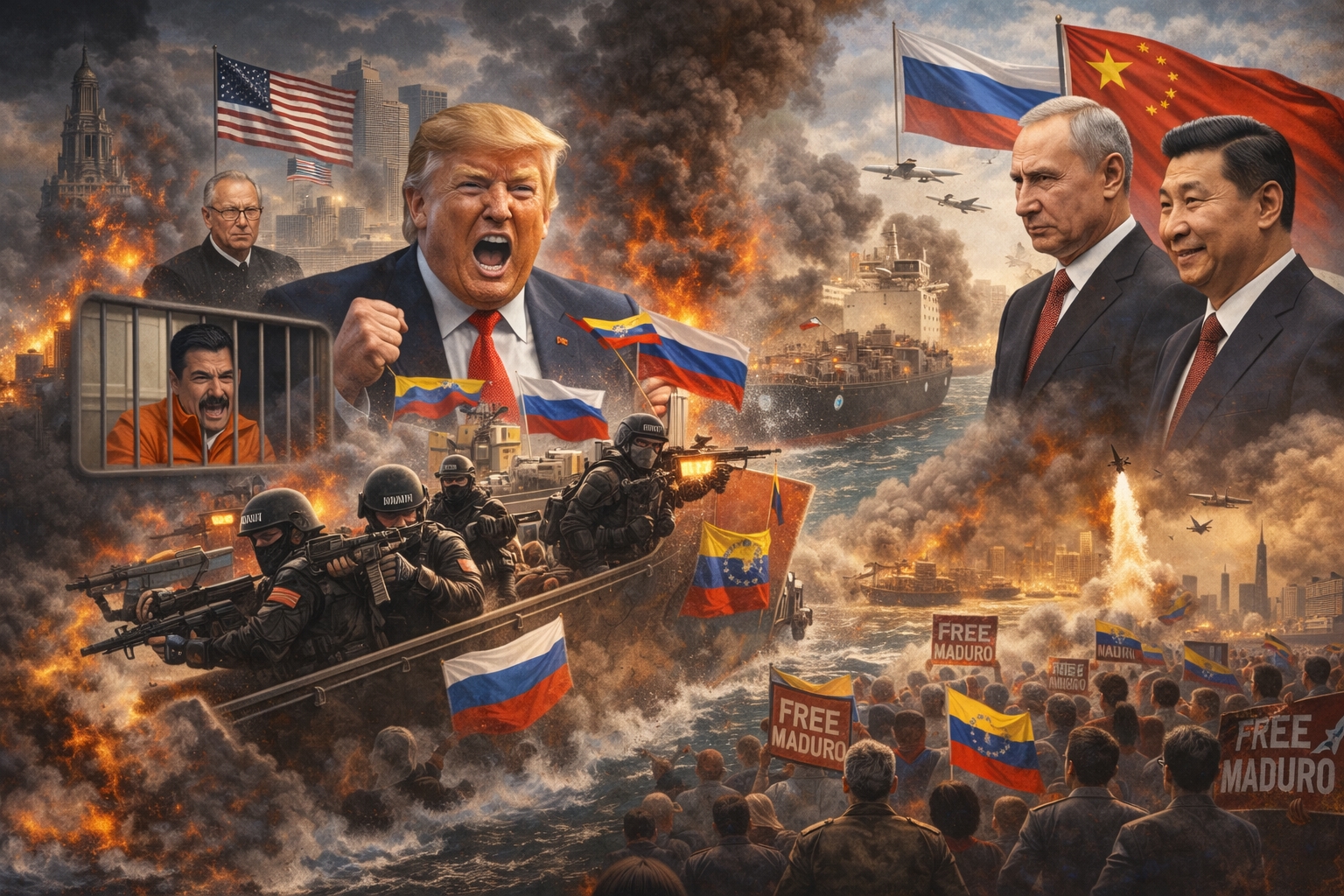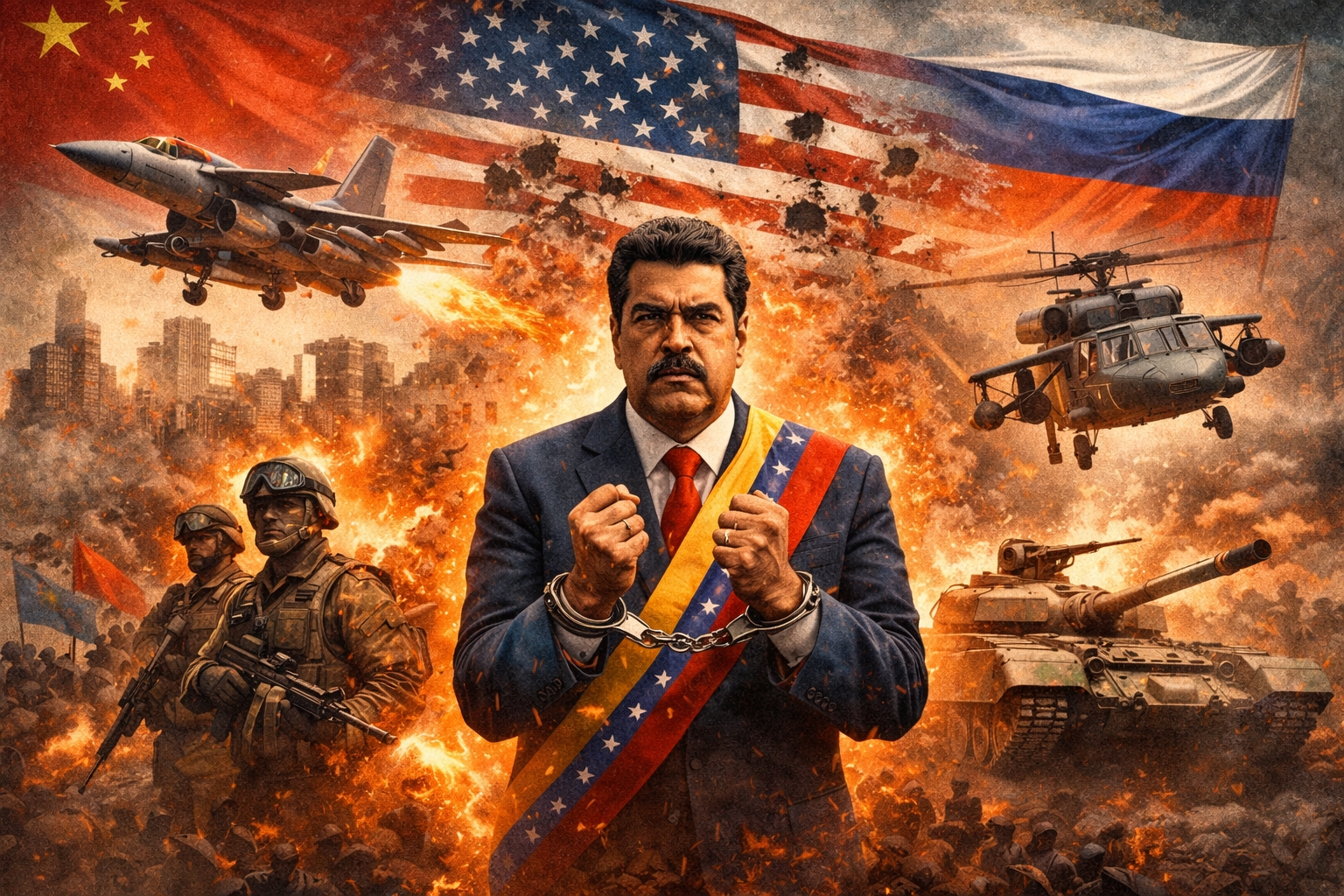Canadian government upset over US interference, yet it often meddles in others’ internal affairs
Ensuring Socio-economic JusticeCrescent International
Rajab 10, 1443 2022-02-11
Daily News Analysis
Canadian politicians are rightly voicing concerns about the influence of US right-wing political groups on protests in Ottawa.
Yet quite often, Canada itself interferes in the internal affairs of other countries.
One of the recent examples of such interference abroad was Ottawa’s push for regime change in Venezuela.
Canada went so far as to promote Juan Guaidó, who declared himself Venezuela’s president, but did not even run for president.
Since 2017, Canada has been one of the founding members of the so-called Lima Group, which aimed to overthrow the legitimate government of Venezuela.
Even if we assume—a big if—that Venezuela is run by a dictator as described by Justin Trudeau in 2019, it is none of Ottawa’s business to impose leaders on another sovereign country.
Canada and other NATO regimes love to talk about international law and rights but often forget that state sovereignty is a bedrock of the contemporary global order.
Under international law, countries have the exclusive right to manage their internal affairs as the domestic socio-political institutions see fit.
The Canadian government also seems not to be bothered by its involvement in the atrocious war on Yemen led by the despotic Saudi regime, whom the Canadian government eagerly arms.
The ongoing protests in Ottawa and the reaction of the Canadian government to the worrying influence of US right wing groups once again highlights the double standard practiced by NATO regimes.
It is considered acceptable to support deconstructive socio-political forces abroad when they advance Western interests, but it is bad if a Western country is affected.
The spat between Canadian politicians and America’s rightwing political forces is another sign of the unraveling of the US-imposed global order.
It clearly reflects strong political factionalism within NATO regimes.
Apart from the unintentional “foreign policy” dent created by the truckers’ protests, on the domestic front, in the short-term, the current protests will harm the Liberal-led government of Canada.
In the long run, however, the Conservative Party, known for its staunchly anti-Muslim views, will suffer greater political setback.
Most governments in the world, including Canada’s got wedded to the idea of lockdowns and other COVID-19 restrictions.
As they are now proving to expire in their usefulness, once the soon-to-be expected restrictions are lifted, the protestors in Ottawa will project it as their success.
While it will be a successful PR messaging campaign, it will be short-lived.
As the right-wing spectrum of Canadian politics is leading the Ottawa protests, its only proposition and popular relevance revolves around COVID-19 restrictions.
Once these restrictions are eased, they have no concrete socio-political alternative to the current government.
Also, the protests have once again reinforced the perception which has linked the right-wing political spectrum of Canadian politics to its mainstream voice—the Conservative Party—with extremist far-right ideologies.
The Conservative Party will not be able to recover from damage to its image without paying a steep price due to societal attitudes in Canada.
The broader political narrative of the protestors is not an appealing alternative and will subside as the world learns to live with COVID-19 rather than hide from it.



